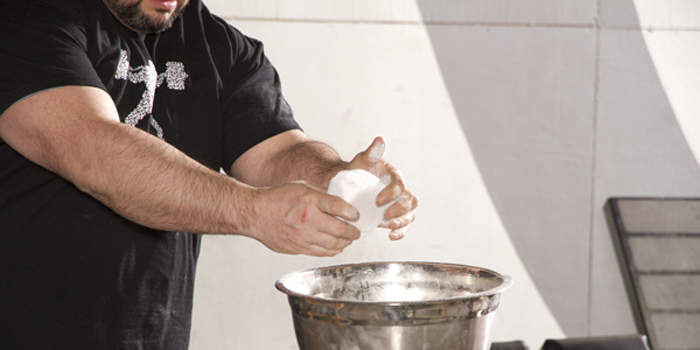
I am very proud of the sports performance podcast we started here at elitefts. I thank Dave for allowing me autonomy to do it and Steve Colescott for his guidance in setting it up. I have learned a ton from every single one I was able to do. I am luck in that I am able to choose the guests and the questions. I will admit that I am not a very good interviewer or speaker. What helps is that I usually have a personal relationship with the guests before the interview so it was more like a conversation than a formal interview. I still have a lot of work to do.
I just had an interview yesterday with Jay DeMayo and have four interviews scheduled over the next two weeks with Nate Harvey, Shawn Myszka, Ashley Jones, and Jeff Moyer.
One of my inspirations for the podcast has been the Strength Coach Podasts hosted by Anthony Renna. I liked hoe they did business and I knew we could do that. I also enjoy Ron McKeeferey. We often have similar guests but the interviews are different, and I think we compliment each other well.
The podcasts have had some issues. The first episode took about 30 hours of work while there was a point where we lost all of the episode of of iTunes and had to re upload them. That sucked ass.
One of the last podcasts I listened to on Mike Boyle's Strength Coach Podcast was part I of an interview with Nick Winkleman. Now I have heard great things about Nick. My good friend Gary Schofield had Nick speak at the SE Regional Clinic and had nothing but great things to say about his speed development. His last interview, he talked about motivation. It really made sense to me.
Motivation and Motor Learning
Winkleman refers to the Self-Determination Theory, otherwise referred to the Macrotheory of Motivation.
Here is a link to a paper by Deci and Ryan.
http://www.anitacrawley.net/Resources/Articles/Deci%20and%20Ryan.pdf
Winkleman expands on the SDT in that all psychological needs need to be filled. When that happens and we are content, only then can the highest level of motivation be achieved.
According to Winkleman, there are 3 components that directly effect the level of intrinsic motivation. Intrinsic motivation may be one of the most important components to an athletes success. Coaches need to be able to empower their athletes to evolve from Extrinsic to intrinsic.
1. Autonomy
This basically means that people need to have the opportunity to choose. The act of making a choice is what needs to happen for coaches and athletes to "buy-in" to the program and subsequently themselves. Anytime and athlete or assistant coach feel they have input to decisions or have the freedom to make their own; they are going to be more motivated for success. What is the motivation level like when you as a coach are running your head coach's program? The difference when coaching your own is night and day.
2. Competence or Self Efficacy
This is mush more than self confidence. It's not a feeling but more function. The ability to master a task under a high stress situation. I wrote about the experience with The Rats and how preparing IN a high stressful situation FOR a high stressful situation. Coaches who place their athletes in a competitive situations put them in a better situations to succeed. Keep in mind, that forcing your athletes to compete is no guarantee you will build their confidence or competitive. But, it will provide them with more opportunity to learn and develop. Confidence will depend on them. Competence will depend on you and them.
3. Relatedness
Winkleman refers to this as the "glue." This refers to how individuals relate to teammates or their staff. The social connection with other individuals that develops a team culture. How does relatedness help shift the extrinsic, reward based, motivation with intrinsic motivation? The basic human need to help and be depended upon. This is not just wanting approval from teammates or staff. This comes down to the need to be indispensable and needed.
When it comes down to it, competent skills toward given task will equate to a high level of intrinsic motivation. Empower your staff or your athletes with these three basic components to help them achieve their goals.
Autonomy
Competence
Relatedness
THURSDAY PM
Pocket Snatch
40kg for 6 triples
Conventional Deadlift
140kg for 5 sets of 5
hook, double overhand, straps, straps, touch & go








